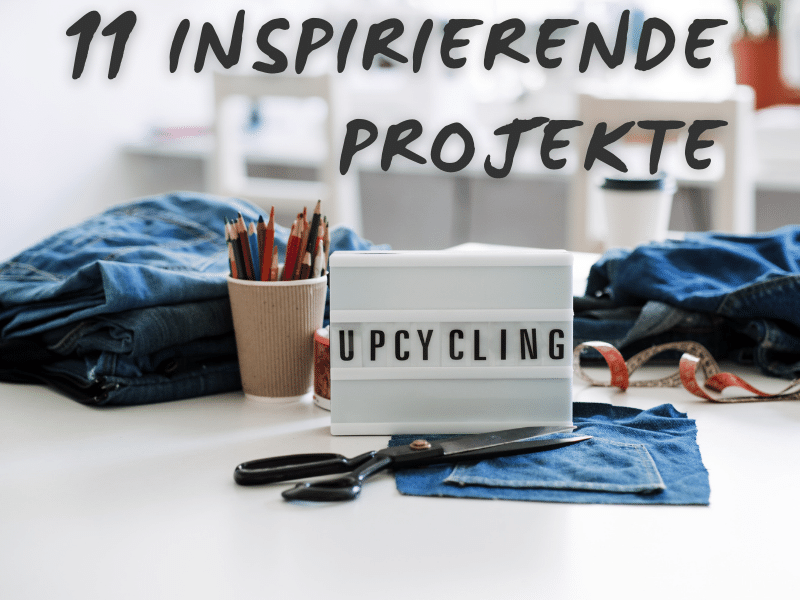During the last years we have come to understand that consumption is synonym with waste and pollution. The environmental effects of fast fashion, the use of plastic for food storage and the accumulation of discarded electronics are undeniable. At the beginning of the new millennium, when concepts like “global warming” and “climate change” were novel ideas, we were told to take small individual steps, changing the way in which we live our daily lives. The promise was that these small changes would eventually evolve into a larger and more significant transformation.
However, now we are witnessing a shift of paradigm, we have realized that individual actions are not enough to save the planet, greater structural adaptations are needed. With this in mind, companies and startups are now actively trying to change the way in which we consume and satisfy our needs, they are reimagining the idea of “buying” itself. Instead of purchasing new products they are devising new strategies such as renting, reusing, repurposing and upcycling. We have selected some of the most exciting and innovative projects that enable the consumer to choose a more sustainable lifestyle without having to give up our love for shopping. These 11 initiatives reveal how we don’t have to turn ourselves into ascetic monks in order to take care of our planet, instead we just have to spend our money wiser. Before diving into these exciting projects, we will give you some background for you to understand better the context and intention of these proposals.
What it’s all about upcycling and how is it different from recycling?
Upcycling is the idea that products shouldn’t be limited to a single lifetime. Through different methods and processes used products can be reintroduced into new and alternative purposes, they can even be transformed into something much more interesting and valuable. That is precisely the difference between upcycling and recycling; when you recycle something it downgrades from a stage of „newness“ towards something that has less of a value but still retains a function. With upcycling it is the opposite: that old sweater you don’t want to throw away, the dingy pan forgotten deep in the cupboard or the broken chair that you have stored in the basement, they can all be introduced into a new cycle of life, in which they retain their value or increase it. With upcycling you avoid buying unnecessary new things and at the same time you avoid throwing away your old stuff; you diminish your waste and at the same time you give your pocket a break!
The circular economy, or how to break the waste chain
Before the eco-revolution started, most societies followed the classic economic path: materials are transformed into products, then these products are sold to consumers and after the products are used, they are discarded as waste and then the cycle re-starts with the creation of new objects. The circular economy aims to change this by avoiding the part in which products are transformed into waste after a single-use. By means of different technologies and human interventions used products can be readapted into new things that can satisfy other needs. With the integration of this circular economy into our societies a new economic block would have to appear, one that is dedicated exclusively to upcycling and readapting used objects, this would represent a huge opportunity for entrepreneurs and will eventually create numerous jobs and significant economic benefits, along with an improved ecological social consciousness.
Basics about zero-waste and carbon footprint
Many companies have started to brand their products and services as being zero-waste and having a low carbon footprint. And that definitely sounds great! But it sure can be confusing for the general public, so we have done the research for explaining you these concepts in an easy and clear way.
Zero-waste is a statement regarding the ethics of production of a certain item. It basically states that the waste generated by the production process was reused or repurposed throughout the production line. The companies and brands that use this label are compromised with a responsible production system that minimizes environmental impact. They try to develop a dynamic procedure in which no by-products are dumped into the land in any stage of the fabrication process.
In the case of carbon footprint, this points out towards the greenhouse gases and emissions (such as CO2 and methane) that are generated during a certain production cycle. This involves fabrication, packaging, transportation and commercialization. This can be calculated in different ways, ranging from a single individual object, to an entire company or organization. There are many ways in which the carbon footprint can be diminished such as using recycled resources and materials, using hybrid or renewable sources of energy, avoiding unnecessary business trips, creating efficient and low-impact collective transportation strategies for the employees, and so on.
Brief notes on sustainability
After we have discussed these concepts, it is important that we learn how to use them in a practical level and inspire our behaviors based on this knowledge. Each of us can do research in our cities and towns and see what small businesses and companies offer product options that are respectful with zero-waste, carbon footprint reduction, upcycling and circular economy models. This is what we could call „Responsible consumption“ and below we will give you inspiration and ideas from 11 innovative upcycling projects for adopting a more sustainable lifestyle.
1. PlasticWhale (Amsterdam, Netherlands)
This company offers elegant and minimal designs created with plastic that has been fetched from the famous canals in Amsterdam. PlasticWhale creates this furniture in collaboration with Vepa whose factory respects a strict zero-waste ethic. The marine-inspired objects range from tables and chairs, to lamps and acoustic panels. The objects are created with distinctive felt panels which are made by crushing PET bottles into tiny flakes and then bringing that together into fibers, which are compressed into a malleable and durable material. This is a perfect example of what upcycling means, a low-value object such as plastic waste is transformed into a high-value product in the form of award-winning designer furniture that can decorate any chic loft or minimalist office space.
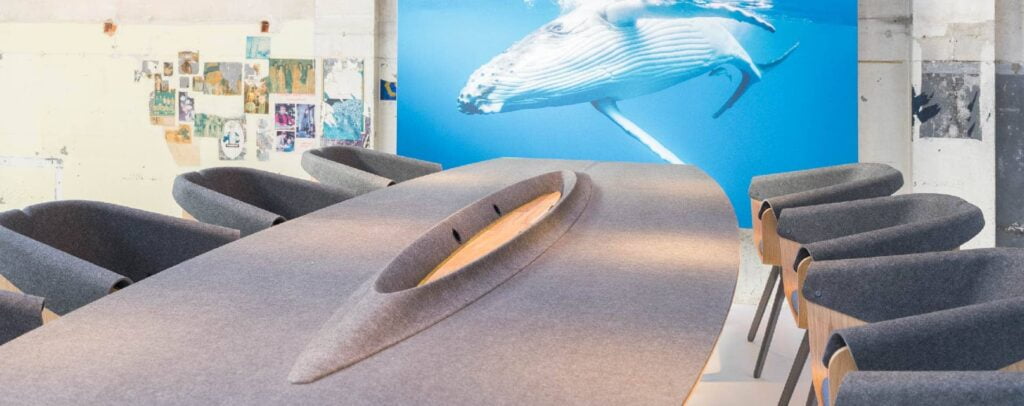
2. Proservation (Germany)
A very creative project in Germany that is focused in developing customized packaging made with residual grain husks. Proservation proposes that instead of using plastic, Styrofoam or the classic bubble wrap, which will remain in Planet Earth for hundreds of years and can contribute to microplastic pollution, you could use these eye-catching bio-friendly packages. This initiative is perfect for small-business owners who want to pack their products in an eco-friendly way. The packaging is specially designed for the safe transportation of very fragile objects such as glass bottles, ceramic objects or even electronic devices. With this kind of packaging you can assure your clients they can throw it directly to their compost bin after unpacking their purchases.
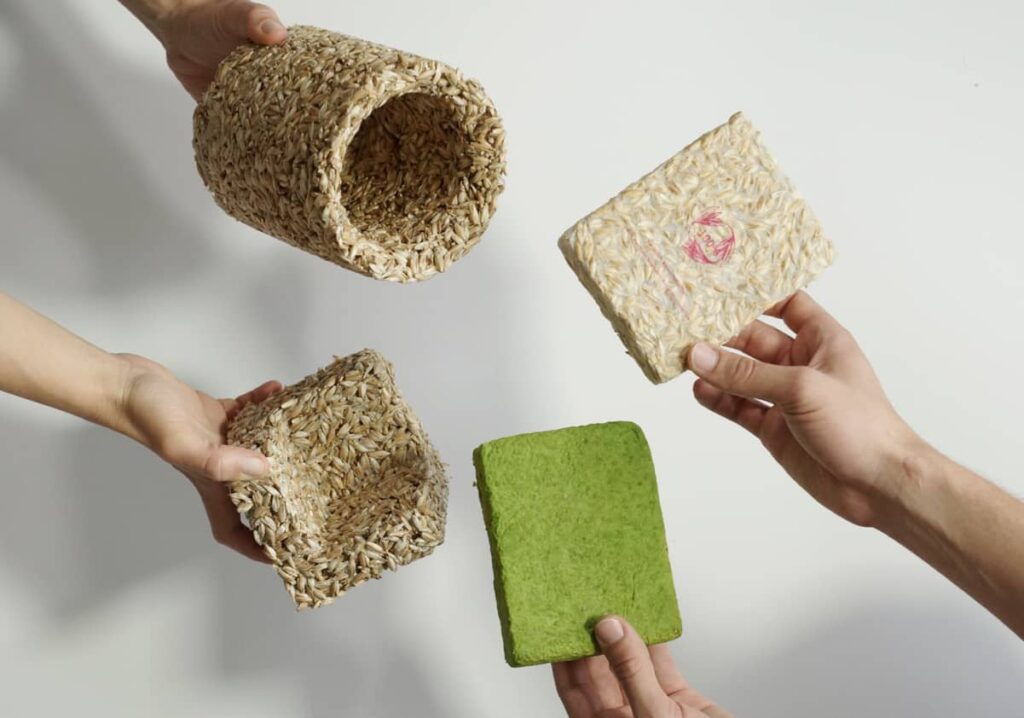
3. Refurbed (Germany)
This clever idea will help you break the tendency of wanting to buy a new smartphone every single year. Refurbed is a German company deeply engaged with sustainability, they allow consumers to buy renewed gadgets with two great benefits: achieve a cheaper price and at the same time reduce the ecological footprint of buying new electronic devices. Tablets, laptops, smartphones and Apple products are tested by experts and come with a 12-month warranty, so you don’t have to worry about any unpleasant surprises.
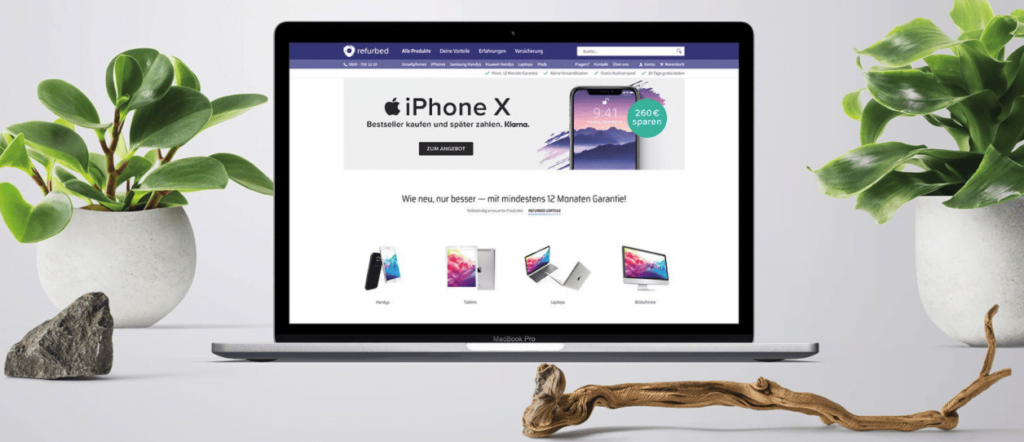
4. RAGFAiR (Switzerland)
We all have heard about the terrible environmental consequences of buying fast-fashion. RAGFAiR is a Swiss company that enables fashion lovers to rent stylish clothes instead of buying them. You can choose between renting a specific garment for a special night or signup for a subscription in which you are able to rent 3 items and do unlimited exchanges throughout a month. This is a great way to indulge in ever-changing trends without having to contribute to textile waste, and without affecting your bank account, since it is way cheaper than buying new items directly from stores.

5. ecoBirdy (Ghent, Belgium)
Every kid has fond memories of the toys which gave endless hours of fun and enjoyment, however most of them are made with plastic and eventually will end up in landfills. ecoBirdy enables these discarded toys to come back as colorful furniture to inhabit children’s rooms, schools and outdoor spaces. Old toys collected from European waste are processed and transformed into beautiful sets of kid-sized furniture. Their unique design has been recognized internationally, so you can find these objects in specialized museum stores such as the Bauhaus Designshop in Dessau, Germany or the V&A Museum of Childhood in London, UK.
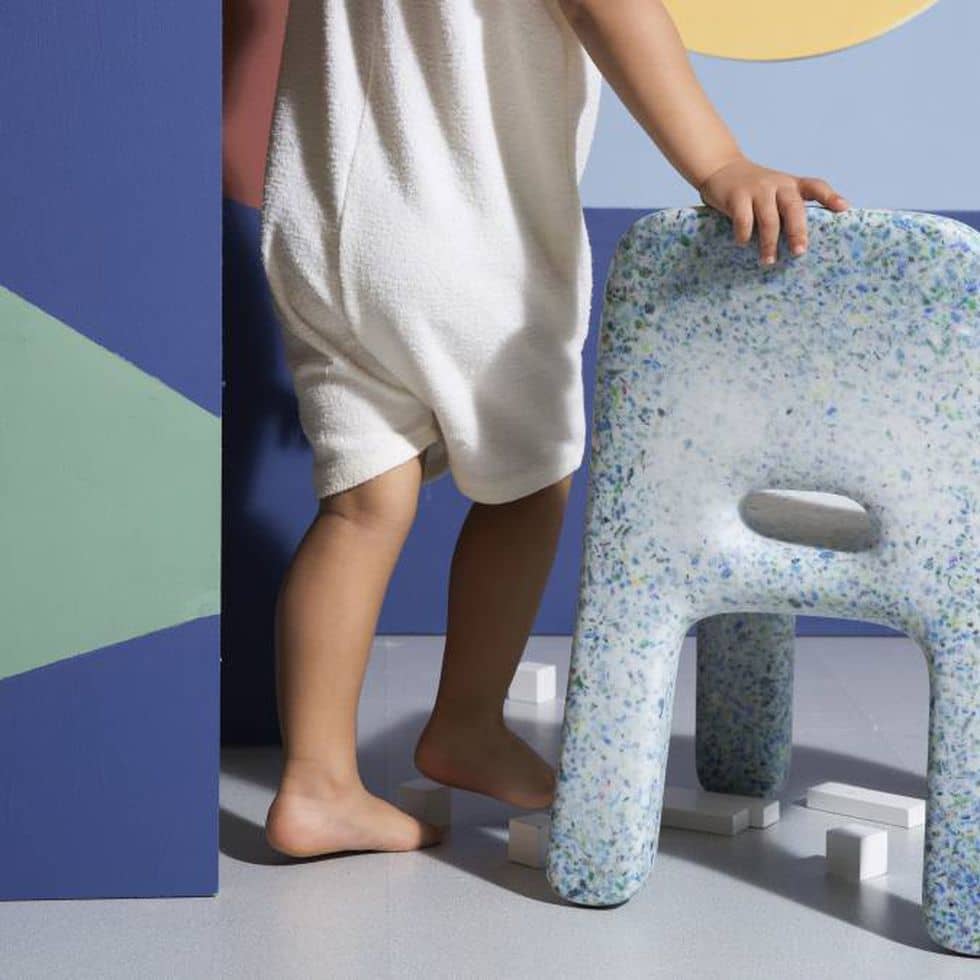
6. ecoChair (Basel, Switzerland)
ecoChair is a startup located in Basel that aims to make quality second-hand furniture accessible to everyone. The project is basically a permanent treasure-hunt, the owners of the business find themselves constantly visiting flea markets and warehouses, where they find unique pieces that will be properly repaired and then offered within a closed-knitted community of upcyclers and eco-enthusiasts. The compromise is to offer unique objects and to involve costumers into reusing and repairing rather than buying new furniture. If you love sustainable buying but you’re not the biggest fan of visiting markets, this website and store will make all the hard work for you!
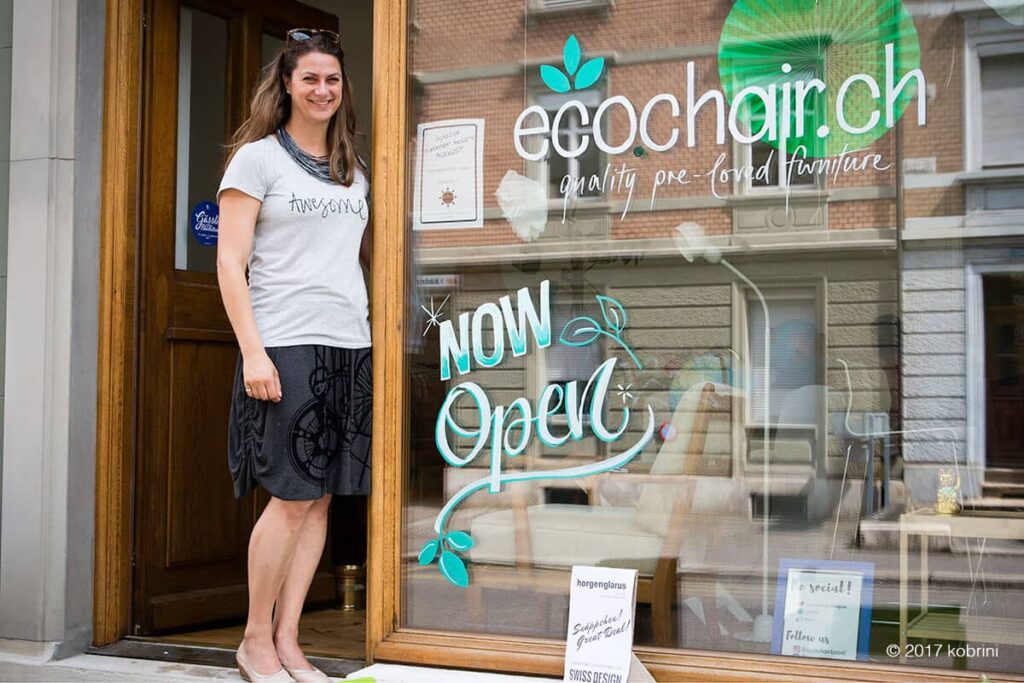
7. Luya Foods (Switzerland)
If you have doubted to get a meatless hamburger or another meat substitution dish, then maybe you should try Luya Foods. Luya is a Swiss company dedicated to transform okara, a by-product obtained from the production of tofu and soy milk which is mostly discarded, into tasty plant-based alternatives. Their approach is quite unique in the sense they are not trying to create meat imitations as other vegan product companies try to do. Several restaurants in Switzerland are already serving dishes made with Luya. The sustainable part of this project is that they take advantage of the whole cycle of production of soy milk and tofu, avoiding to discard something that is nutritionally rich and that in some Asian cultures is a common part of the everyday diet.
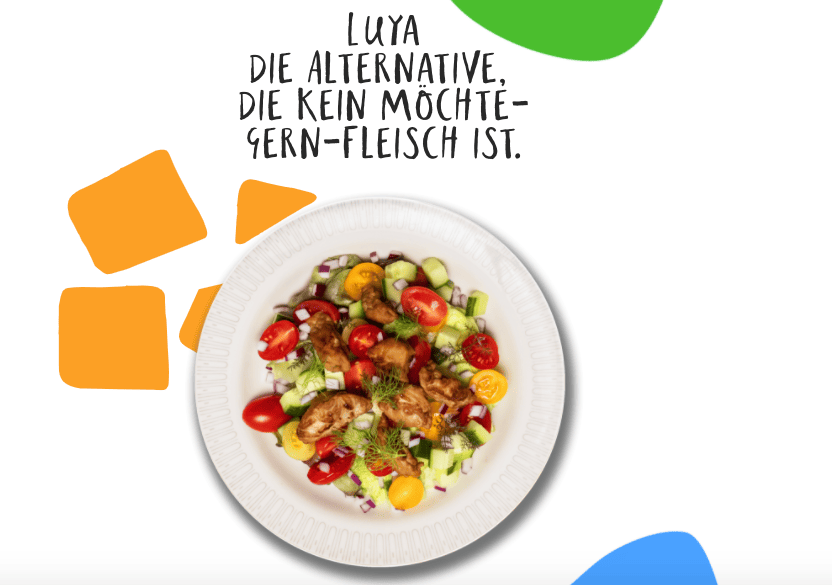
8. Multibox (UK)
A large part of the human population is just addicted to eating meat products and other delicacies derived from our much beloved farm animals. However, meeting the global demand for meat has led the industry to take some questionable decisions, like deforesting entire areas of the Amazon Forest in order to grow soy and other monocultures in order to feed our cows, pigs and chickens. Multibox is a company from the UK that wants to restructure the whole system of food production by upcycling waste that would normally be thrown away. By collecting waste from different crops, they produce insects with a very low-cost method. These insects can later be transformed into feed for livestock or fertilizer.
By accepting the help of your little insect friends, we could create alternatives that don’t depend on deforestation and high levels of water consumption.
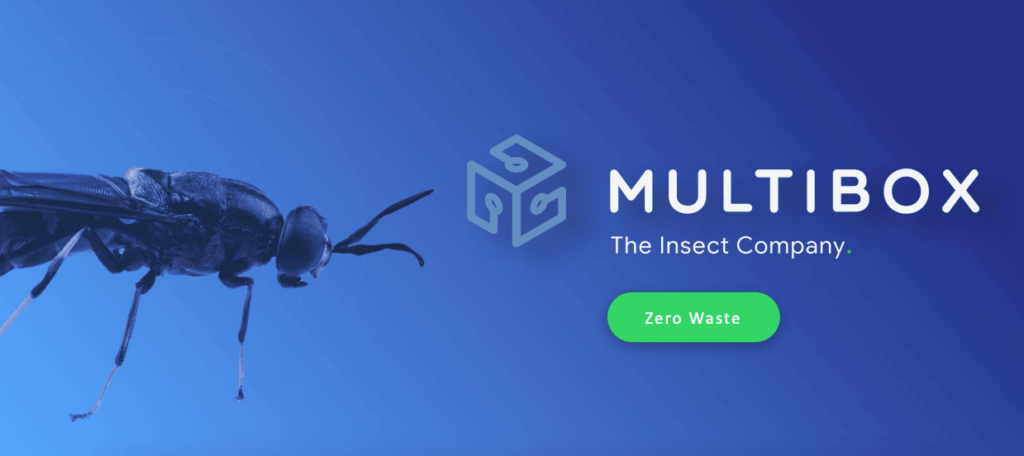
9. oREgami (Zürich, Switzerland)
If you care about sustainability, take-out food is probably one of the things that gets you raging the most. In recent years it has improved by changing most of the plastic and Styrofoam, for paper and cardboard, but still the amount of waste produced by a single food order is immense. oREgami is a Swiss project that wants to change that. Inspired by the beautiful geometrical designs of Japanese origami (the art of folding paper), they have designed a whole set of reusable packaging that can be used for take-out. You just need to sign up in an app, order from a restaurant that offers oREgami take-out service, and you will have a period of 14 days for returning the food containers to your nearest collection point. They will be properly sanitized and then supplied to the restaurants.
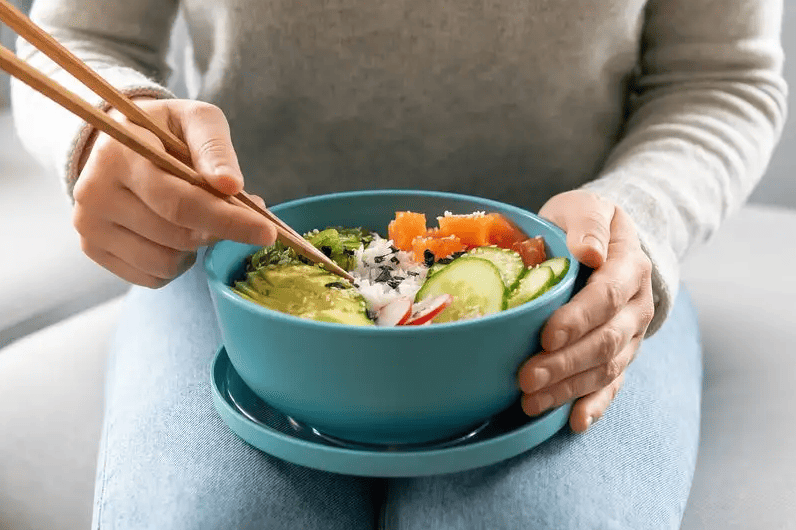
10. Swapabee (UK)
Think about a dating app for upcycling fans, that is exactly what Swapabee is! it connects you with other people that are committed with the environment and want to swap items that they don’t need anymore. By uploading your belongings to the app, an algorithm will suggest you other things of similar value that you might be interested on. Currently the app is only functional in the US and the UK, but is already planning to expand its operations since it has received very good attention from the public.
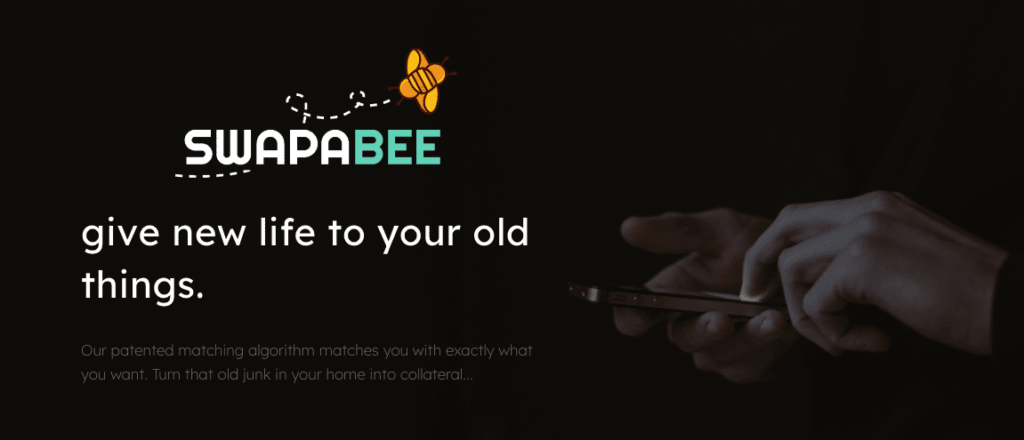
11. RePan (Switzerland)
We know, cooking with a non-stick pan with a coating that has stopped doing its job can be a tricky task. After trying to wash that same pot for 10 minutes and with several different washing techniques you would probably think it’s just for the best to throw it away. RePan is a company that will make you change your mind, since they offer an effective and easy-to-use service for renewing the coating of your pans. You just need to register and to send your pans via shipping company, they will return good as new to your house in a few days. RePan is cheaper compared to buying new pans and it’s also a great way to cutting the amount of waste a household produces.
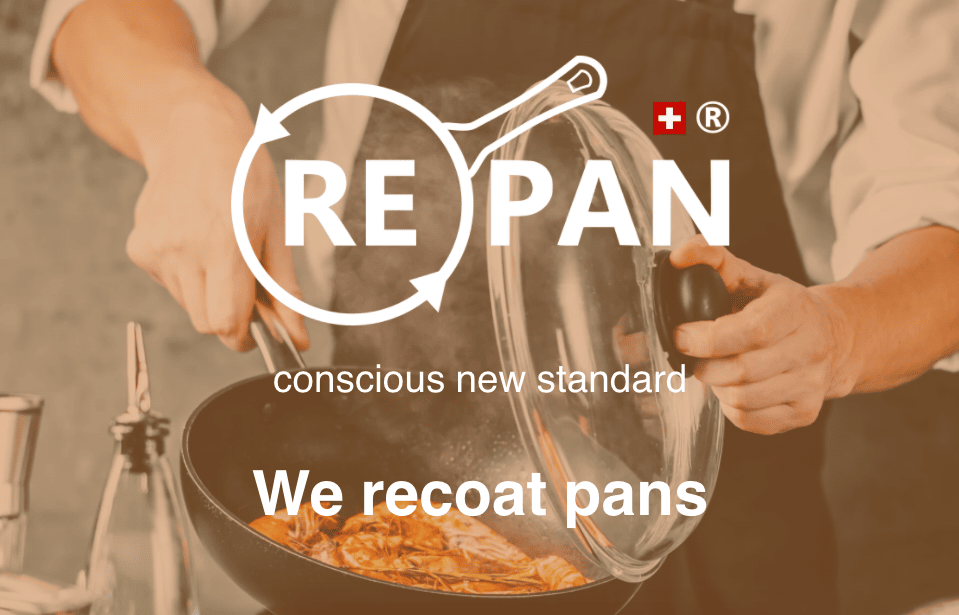
Conclusion
So now you know it! There are several inspiring and creative projects that can contribute to give a well-deserved break to our Planet. The next time you find yourself in the debate of throwing away a piece of furniture or some kitchen appliance, think about it twice, maybe there’s a company or start-up near from you that can help you give that object a second life. At the same time there are many people interested in upcycling and recycling all over the world, it is well worth to check social media and other internet resources to see if there’s a community that can help you adopt these sustainable hacks and introduce them into your own household and day-to-day routine.
